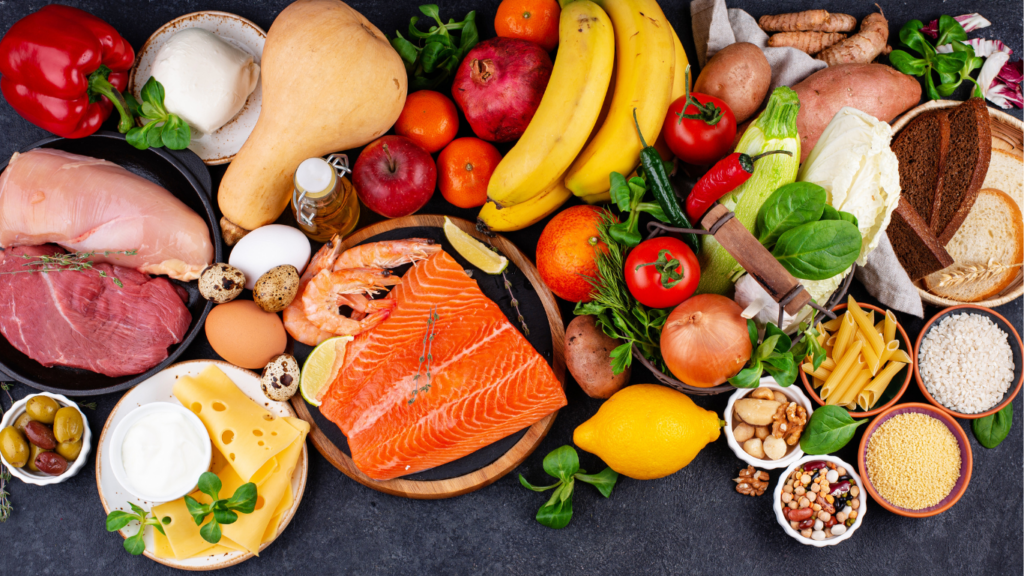Understanding Sports Nutrition
Sports nutrition is the science of fueling the body to enhance athletic performance. It integrates dietary planning with physiological needs, ensuring optimal energy, muscle repair, and overall endurance during training and competition.
Carbohydrates serve as the primary energy source, particularly for high-intensity activities. Foods like whole grains, fruits, and starchy vegetables provide complex carbs that sustain prolonged effort. For instance, marathon runners prioritize carb loading before events to maximize glycogen stores.
Proteins support muscle repair and growth. Lean meats, fish, eggs, and plant-based options like beans and tofu form the core of protein intake for athletes. Post-workout meals often include protein-rich foods to accelerate recovery.
Fats offer long-lasting energy, especially during low-intensity, endurance exercises. Nuts, seeds, avocados, and fatty fish supply healthy fats essential for energy metabolism and hormone regulation.
Hydration is critical for maintaining performance. Fluids and electrolytes, often from sports drinks or water infused with sodium and potassium, prevent dehydration and support muscle function.
Micronutrients like iron and calcium are equally vital. Iron supports oxygen transport in the blood, while calcium strengthens bones and aids muscle contractions. Athletes incorporate foods like leafy greens, dairy products, and fortified cereals to meet these needs.
In sports nutrition, timing matters. Pre-training meals emphasize carbs for energy, post-workout meals focus on protein for recovery, and hydration spans throughout to sustain performance. The right combination of nutrients ensures that athletes perform at their best while minimizing fatigue and injury risks.
The Role Of Macronutrients In Athletic Performance
Macronutrients are critical for athletic performance, supplying the energy and support needed for intense training and recovery. Each macronutrient serves unique functions that directly impact an athlete’s endurance, strength, and overall health.
Carbohydrates: Fuel For Endurance
Carbohydrates provide the primary energy source for high-intensity physical activities. When digested, they convert into glucose, which the body stores as glycogen in muscles and the liver. During prolonged or intense exercise, athletes rely on these glycogen reserves for sustained energy. Foods like:
- brown rice
- oats
- bananas
- sweet potatoes
supply complex carbohydrates that deliver steady energy release. If glycogen depletion occurs, performance drops, making adequate carbohydrate consumption essential for endurance-based sports.
Proteins: Building And Repairing Muscle
Proteins play a key role in repairing muscle damage caused by strenuous activity and promoting muscle growth. They contain amino acids, including essential ones the body cannot produce on its own. Sources like chicken, fish, eggs, and tofu provide high-quality protein necessary for recovery and adaptation to training. Consuming protein post-workout supports muscle repair, reducing soreness and enhancing overall performance. For weightlifters or sprinters, sufficient protein intake is even more vital due to their muscle-intensive activities.
Fats: Essential For Energy And Recovery
Fats supply long-lasting energy, particularly during low- to medium-intensity activities. Unlike carbohydrates, they provide a more sustained fuel source as they’re slower to digest. Healthy fats from avocados, nuts, seeds, and olive oil contribute to energy production, hormone regulation, and inflammation reduction. Endurance athletes, such as marathon runners, especially benefit from a balance of dietary fats as their activities demand prolonged energy output. Incorporating omega-3-rich foods, like salmon or chia seeds, aids in recovery by reducing exercise-induced inflammation.
Micronutrients And Hydration
Micronutrients and hydration play essential roles in supporting athletic performance. Athletes rely on proper intake of vitamins, minerals, and fluids to maintain energy levels, prevent injuries, and ensure peak functionality.
Importance Of Vitamins And Minerals
Vitamins and minerals are critical for energy production, muscle function, and recovery. Iron supports oxygen transport via hemoglobin, reducing fatigue during prolonged exercises. Calcium strengthens bones and regulates muscle contractions, minimizing injury risks. Vitamin D enhances calcium absorption, helping bone density in weight-bearing activities. Magnesium aids in muscle recovery and reduces cramping, especially after intense training. Potassium and sodium maintain electrolyte balance, critical for preventing dehydration and muscle weakness.
For example, leafy greens contain iron and magnesium, dairy products provide calcium, and bananas deliver potassium. These foods enhance performance when integrated into an athlete’s diet.
Staying Hydrated: Key To Optimal Performance
Hydration affects endurance, strength, and cognitive function during physical activity. Losing even 2% of body water can impair performance. Fluids regulate body temperature, prevent overheating, and support nutrient transport. During high-intensity or long-duration activities, replenishing lost fluids is essential.
I incorporate water, sports drinks, or electrolyte-rich beverages to rehydrate efficiently. For example, water hydrates for general activities, while drinks with electrolytes restore sodium and potassium levels lost through sweat. Consistent hydration supports energy balance and reduces recovery time, safeguarding overall performance.
Timing And Meal Planning For Athletes

Strategic timing of meals and snacks enhances energy use and recovery efficiency. Athletes benefit from customized meal planning aligned with their training demands and competition schedule.
Pre-Workout Nutrition
- Pre-workout meals focus on delivering energy and reducing fatigue during exercise.
- Consuming a carbohydrate-rich meal 2-4 hours before activity supports glycogen stores. For example, oatmeal with fruit or a whole-grain sandwich fits this criteria.
- Including moderate protein, such as eggs or Greek yogurt, may further aid sustained energy.
- Avoiding high-fat or high-fiber foods prevents digestive discomfort, especially before high-intensity training.
- For short intervals before workouts, snacks like a banana or granola bar promote quick energy without causing bloating.
- Staying hydrated with water or electrolyte-enhanced beverages ensures fluid balance.
Post-Workout Recovery
Recovery meals restore depleted glycogen and repair muscle tissue. Consuming carbohydrates and proteins within 30-60 minutes post-exercise accelerates recovery. A guideline often used is 3:1 carbohydrate-to-protein ratio meals, such as a chicken and rice bowl or a smoothie with whey protein and berries.
Rehydrating with fluids, including water or recovery drinks containing electrolytes, is essential to replace sweat losses. If activity is intense or lasts over an hour, replenishing sodium and potassium levels supports quicker recovery.
The Role Of Snacks And Supplements
Snacks maintain energy levels between meals, especially in multi-session training. Choices like trail mix, nut butter with whole-grain crackers, or energy bars combine carbs, proteins, and some fats for sustained fuel.
Supplements complement diets when specific needs aren’t met through food. Protein powders, creatine, and branched-chain amino acids (BCAAs) are common among athletes for recovery and muscle synthesis. Consulting a sports nutritionist ensures supplements align with individual goals and training phases.
Common Myths And Misconceptions About Sports Nutrition
Eating More Automatically Enhances Performance
Consuming excessive calories doesn’t improve performance if an athlete’s nutritional needs aren’t met. Quality matters more than quantity. A well-balanced diet, tailored to activity level and goals, supports optimal performance. For instance, overeating fats or processed foods can hinder performance despite increased calorie intake.
Carbohydrates Are Unnecessary For Peak Performance
Low-carb diets may work for specific goals, but carbohydrates remain the primary energy source for most athletes. Eliminating or drastically reducing carbs can impair muscle glycogen stores, leading to fatigue and decreased endurance. Whole grains, fruits, and vegetables provide necessary fuel for high-intensity and prolonged efforts.
Protein Alone Builds Muscle
Protein contributes to muscle repair and growth, but achieving results requires consistent resistance exercise and overall nutrient balance. Without sufficient energy from carbs or fats, protein may be used for energy rather than muscle development, limiting effectiveness.
Supplements Replace Whole Foods
Supplements like protein powders or vitamins can’t substitute for nutrient-dense whole foods. Whole foods provide fiber, antioxidants, and other essential components that supplements often lack. For instance, consuming fish offers not just protein but also omega-3 fatty acids and vitamin D.
Hydration Only Matters During Workouts
Staying hydrated is vital throughout the day, not just during exercise. Dehydration, even at mild levels, can negatively impact cognitive and physical performance. Drinks with electrolytes may enhance recovery, especially after prolonged or intense activity.
Fat Is Counterproductive For Athletes
Healthy fats, such as those in avocados and nuts, provide sustained energy for low-intensity and endurance activities. Completely avoiding fats can deprive the body of essential nutrients needed for joint health and hormone production, both critical for athletic success.
Micronutrients Are Insignificant
Vitamins and minerals, including iron and magnesium, are essential for oxygen transport, muscle function, and recovery. Ignoring these elements can lead to fatigue, weakened immunity, and poor performance. Athletes relying solely on macronutrients risk nutrient deficiencies.





